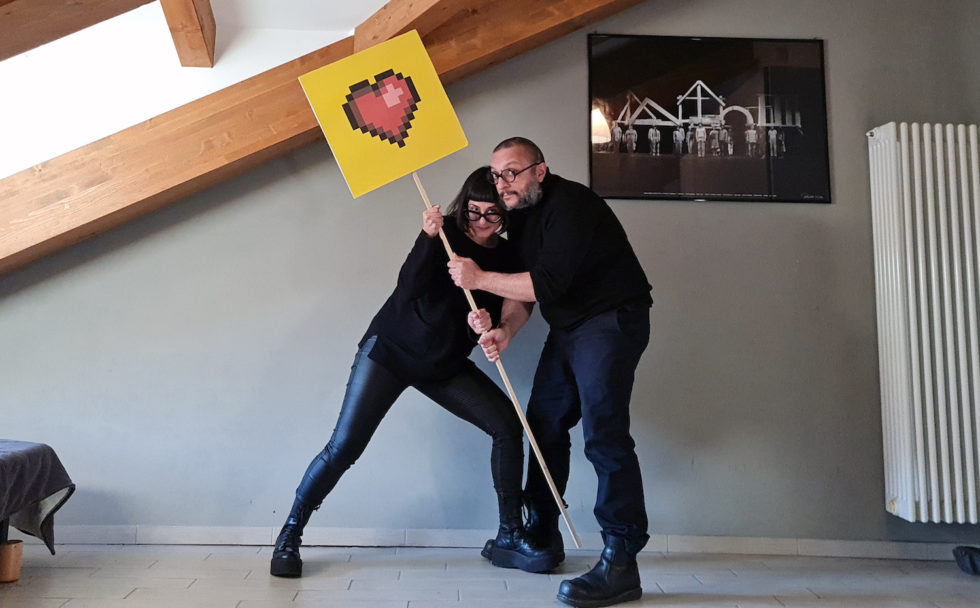Beyond triage and data culture
Friday, March 11 – 5:00 to 7:00 pm
Sharmistha Mishra, Infectious Disease Physician and Mathematical Modeller, St Michael’s Hospital
Madhur Anand, Director, Guelph Institute for Environmental Research, School of Environmental Sciences, University of Guelph
Salvatore Iaconesi and Oriana Persico, Independent Artists, HER, She Loves Data
In a poem appeared shortly after the first lockdown was announced in Italy, Mariangela Gualtieri begins with these words:
Questo ti voglio dire
ci dovevamo fermare.
Lo sapevamo. Lo sentivamo tutti
ch’era troppo furioso
il nostro fare. Stare dentro le cose.
Tutti fuori di noi.
Agitare ogni ora – farla fruttare.
This I want to say to you:
we had to stop.
We knew it. We all felt
how furious, too furious was
our making. Our being into things.
All outside of our selves.
Shaking up each hour—bent on making it yield.
“March 9, 2020,” a poem by Mariangela Gualtieri, transl. Elena Basile
This short paragraph, maybe naively, or maybe hopefully reiterates the (now outdated) rhetoric of the “we’re all in this together”. During the first wave, staying at home was a way to protect oneself and their beloved one, to mitigate the coronavirus spread and to avoid putting a strain on the health care system. But the poem also calls for pausing, if only for a split second, the untenable speed of pre-pandemic life, the crazy traveling, the unstoppable global system of trade, the constant growth, the endless transactions and their productivity. We know today that this first lockdown really didn’t produce the effects many hoped for: it only caused a temporary slow down, where only the most privileged could afford to shelter in place; despite the praises and the clapping, frontline and health care workers did not see their working condition improve; the call for care and caring for each other, the much needed reinvesting in and strengthening of depleted health systems and better social services did not deliver.
The reality is that the pandemic did not initiate any crisis but exacerbated and made visible one that was already in progress: from the strain suffered by severely underfunded and understaffed hospitals to the taken-for-granted inequalities dominating the delivery of health care, the roots of this crisis are as cultural as they are economic and environmental. Among the underlying factors contributing to the current crisis is a dominant orientation towards healthcare that privileges a narrow focus on data-centered technological fixes and praises the potentials of technological delegation. An unsustainable system and a ruthless economy based on the necropolitical management of individuals and populations has culminated in the passive acceptance and even the cold justification of triage as an inevitable evil in a time of crisis and scarcity.
The current system forces individuals to compete in a bizarre struggle of the fittest, where the vulnerable reclaim their rights to the disadvantage of others equally vulnerable, and institutional and technological apparatuses decide who is saved and who is left to perish according to criteria that dangerously smack of new eugenics. We see this in triage and we see it in the hoarding of vaccines by wealthier countries; we see it in the abandonment of mental health patients, cancer patients and generally, the poor.
I am aware that the pandemic also saw many gestures of solidarity, and in some cases the emergence, or the consolidation of new practices of care understood holistically and interdisciplinary, rather than sectorially.
FOR THIS ROUNDTABLE WE INVITED A GROUP of scholars, researchers and creative thinkers to turn a critical eye on the systemic and epistemic failures that have brought us this very prolonged, and now worsening crisis.
Sharmistha Mishra is an Infectious disease epidemiologist, mathematical modeler, and physician at University of Toronto and St. Michael’s Hospital. Her lab’s work is centered around the causes and consequences of heterogeneity in onward transmission risks, with a focus on HIV and other sexually transmitted infections. Her lab’s work on COVID-19 has focused on how social and structural inequalities and networks shape the emergence, spread, and concentration of infections and their health consequences; and how mechanistic and data-driven clarity around local transmission dynamics could be harnessed for a more specific public health response. She holds a Tier 2 Canada Research Chair in Mathematical Modeling and Program Science.
Madhur Anand is the author of the book of poems, A New Index for Predicting Catastrophes (M&S/PRHC, 2015) and the experimental memoir, This Red Line Goes Straight to Your Heart (Strange Light/PRHC, 2020) both considered trailblazing in their synthesis of art and science. A New Index was a finalist for the Trillium Book Award for Poetry. This Red Line won the 2020 Governor General’s Literary Award for Nonfiction. Her second collection of poems is Parasitic Oscillations (M&S/PRHC, 2022). She is a professor of ecology and sustainability at the University of Guelph, and was appointed the inaugural director of the Guelph Institute for Environmental Research.
Salvatore Iaconesi and Oriana Persico are artists, researchers, teachers and cultural activist. Working and living together since 2006, they are authors of global artworks and performances united by the exploration of contemporary technological humanity and its continuous mutation. Founders of AOS – Art is Open Source and HER: She Loves Data, the networks and research centers they use to study the psychological implications of data and computation, since 2020 they are promoting the cultural movement of Nuovo Abitare (New Living) and the ARNA – Archive of the Rituals of Nuovo Abitare, which represent the evolution of their research..



